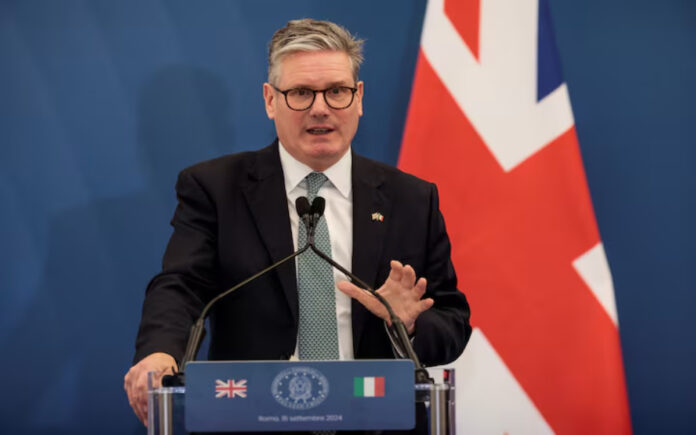Rome: British Prime Minister Keir Starmer has assured that his government’s first budget, set to be unveiled next month, will align with his goal of fostering economic growth. However, he cautioned that unfunded spending commitments could potentially harm the economy.
Since his election in July, Starmer has highlighted the challenging fiscal situation inherited from the previous Conservative administration. New Finance Minister Rachel Reeves has signaled that taxes may need to increase in the upcoming budget, scheduled for October 30, due to a £22 billion ($29 billion) shortfall in public finances.
In anticipation of the budget, Starmer emphasized the importance of addressing this fiscal gap to ensure economic stability, which he views as crucial for growth. “If it promotes economic growth, it’s in the Yes column; if it inhibits economic growth, then it’s in the No column,” Starmer told reporters during a trip to Italy on Monday.
Starmer underlined that achieving stability is a prerequisite for economic growth, stating, “And because I believe that stability is vital for economic growth – I don’t think we’re going to get economic growth if we don’t stabilize the economy – we’re going to do the really hard stuff now.”
Also Read | Climate Change to Intensify Child Health Crisis Through Malnutrition, Warns Bill Gates
Labour has pledged to adhere to a fiscal rule where day-to-day expenses are covered by revenue and debt must decrease as a share of the economy within five years of a budget forecast. When asked about potentially adjusting fiscal rules to stimulate growth, Starmer indicated that this would be addressed in the budget, but stressed the importance of maintaining strong fiscal rules.
Also Read | Microsoft Approves Major $60 Billion Buyback Program, Anticipates AI-Driven Growth
“I’ve always thought it’s important to borrow to invest,” Starmer said, while cautioning against repeating the unfunded budget measures that contributed to the downfall of Conservative Prime Minister Liz Truss in 2022. “Unfunded commitments for spending are just as bad (as unfunded tax cuts) and likely to have the same impact on the economy.”



